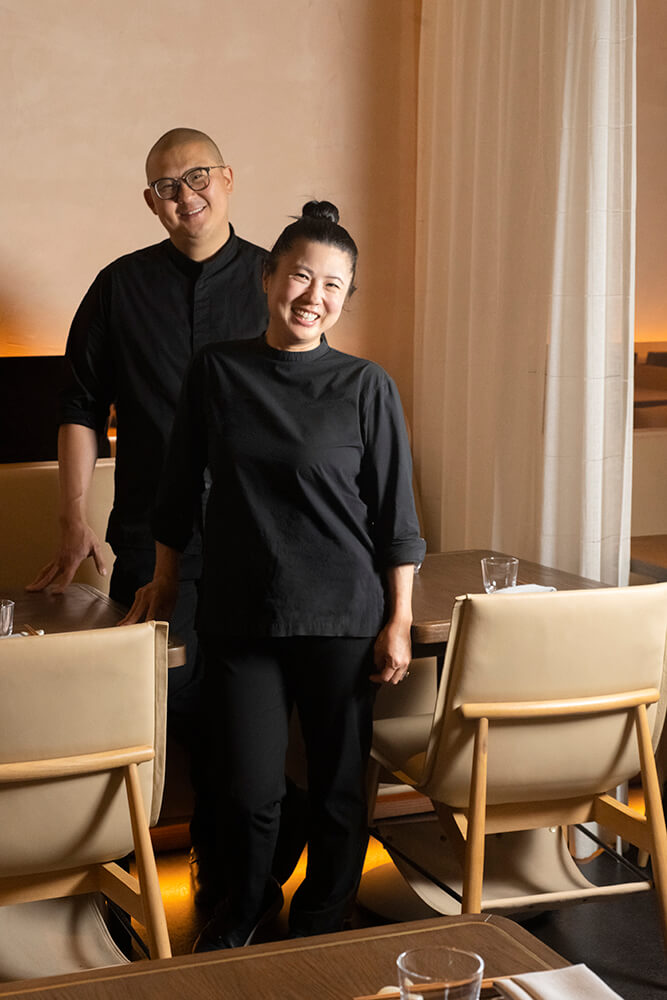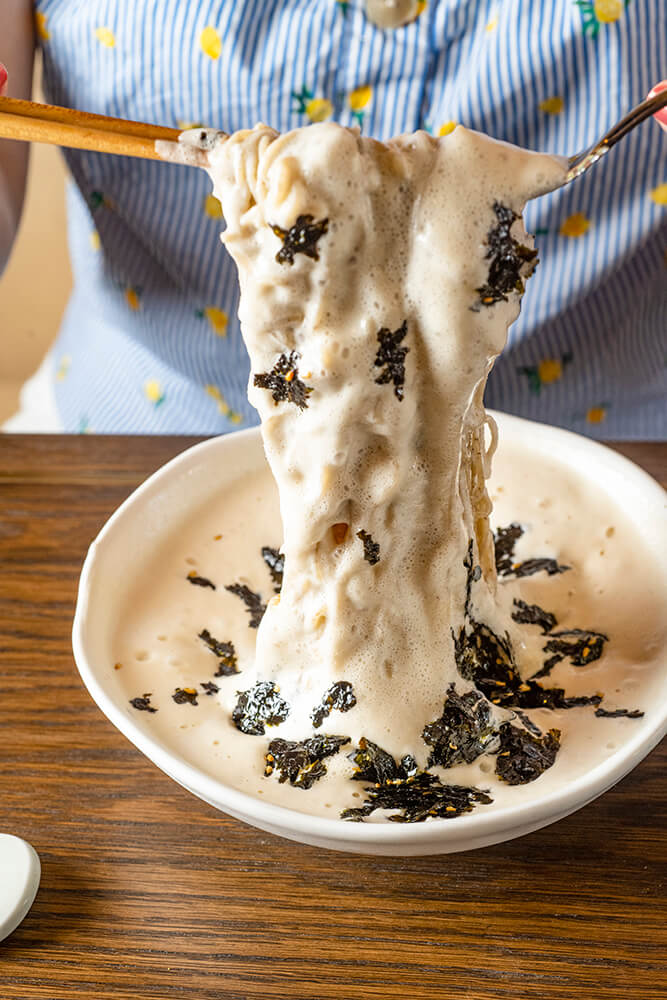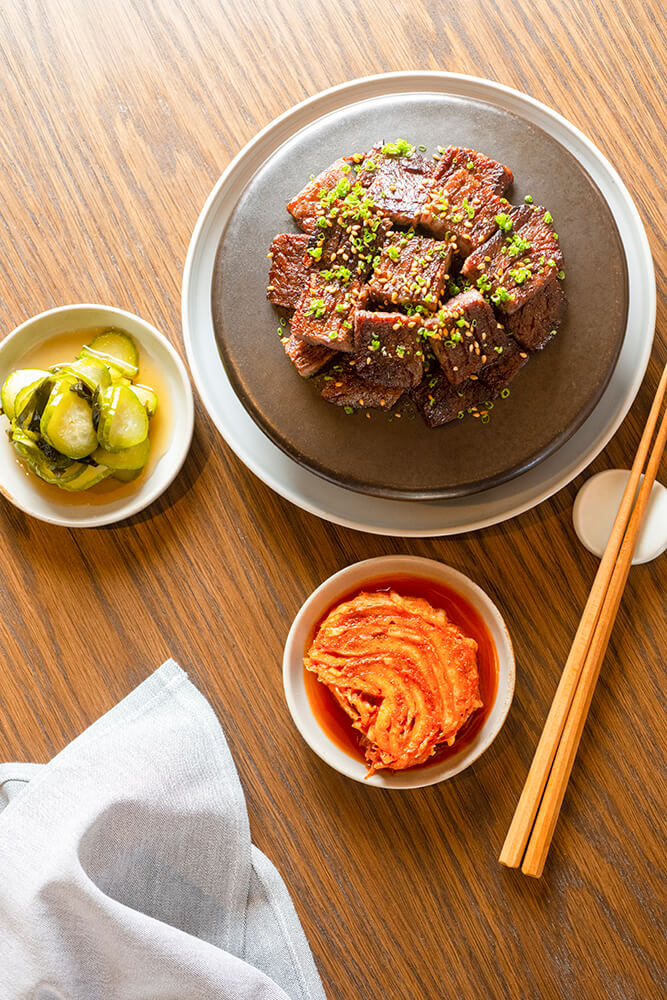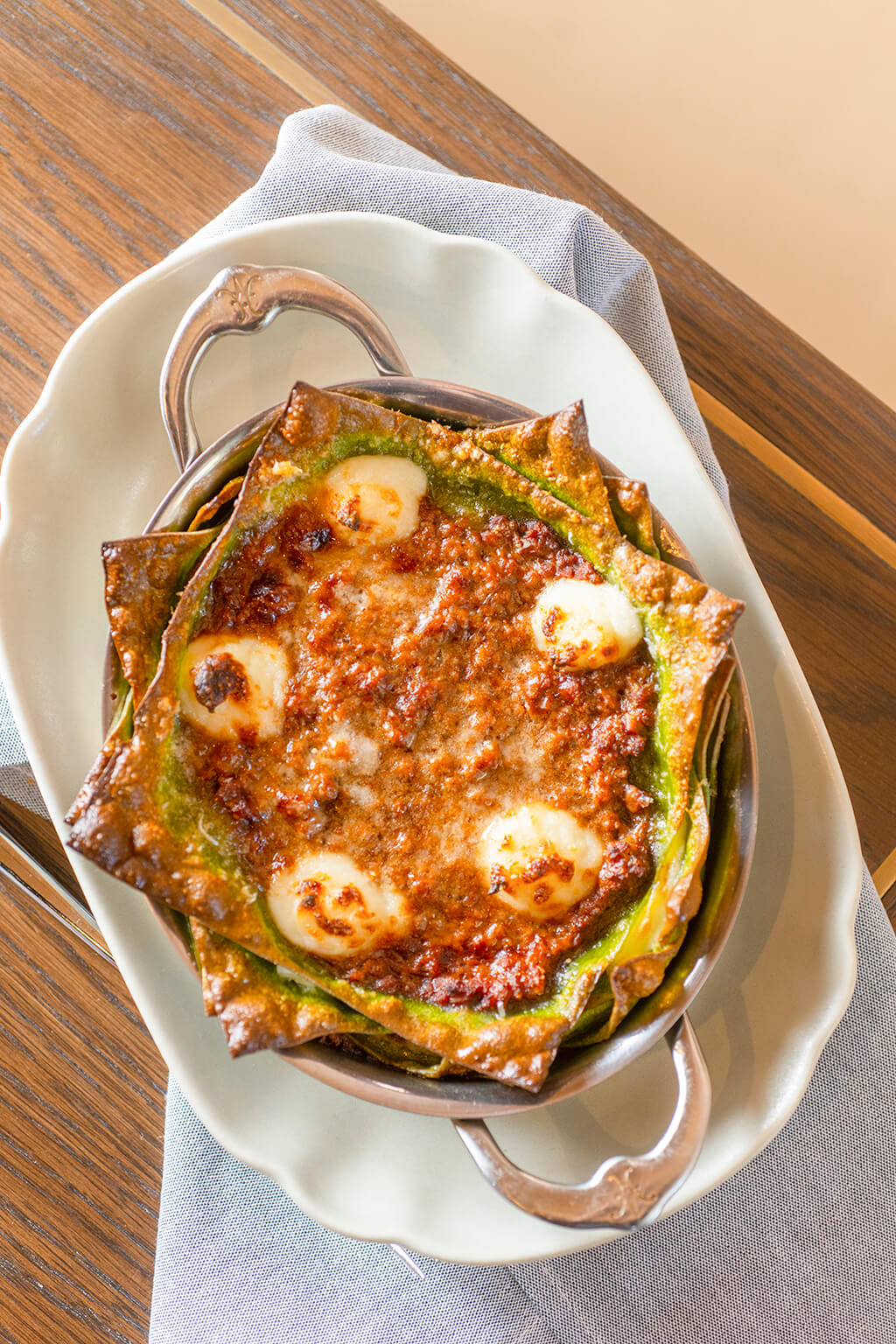Words by Elaine Wu
Yeobo, Darling is arguably Menlo Park’s buzziest new restaurant. But for husband and wife owners and executive chefs, Meichih and Michael Kim, that was never the goal. They say the eatery is more of a love letter to the food of their combined cultures and the community they call home. “It’s a very personal restaurant,” Meichih says. “There’s a general respect for each culture and an open-mindedness that travel gives you. And that’s what our menu is a reflection of. We want people to come in open-minded.”
Having met while working the kitchen at the now shuttered Craft in Los Angeles, Meichih and Michael eventually went on to open Michelin-starred Maum in Palo Alto, and then the more casual Bao Bei in Los Altos. Their experience working at award-winning restaurants (Per Se and Benu for her, SPQR for him), along with their heritages—Meichih is Taiwanese American and Michael’s Korean American—make up the foundation for Yeobo, Darling. “There’s a lot of different cultures in each dish, but at the end of the day, our menu is very cohesive,” Michael says. “What resonates with me is what I grew up eating,” Meichih adds. “We marry that with all our experience in fine dining and put that all into one bite.”

A self-declared “voracious eater” as a child, Michael has always loved food. But for Meichih, her culinary passion didn’t appear until she was in college. “I would miss my mom’s cooking and try to make her dishes,” she recalls. “I realized I enjoyed cooking and thinking about how to execute a dish, change it, revise it. I really loved that process. After college, I worked as a financial analyst and sitting there got so monotonous that I couldn’t see a future in it. I’d watch cooking shows and realize how much I enjoyed cooking, so I applied to culinary school and would go at night after work.”
Michael and Meichih are true partners in both work and life—not working together is no longer an option. “We weren’t a couple when we started working together, so we have a level of professionalism and respect for each other as chefs,” says Michael. “A lot of people who are coupled and try to work together later in life don’t have that base, so that causes conflict.” Meichih adds, “We have the same goals and want to uplift each other. We know how to step in for each other when we need to and when to step back when we should.”
The word “yeobo” is one of endearment in the Korean language, akin to calling someone “darling.” It was a longtime wish for Meichih to name a restaurant using the term, but it also sets the tone for what the couple is trying to accomplish. “There’s a lot of heart to that word. I think what we’re doing here really plays on that,” she says.
The eclectic menu blends their Korean and Taiwanese backgrounds. Customer favorites include the Chinese braised beef lu-rou lasagna, a scallion croissant with rou-song (Chinese pork floss) butter and the wagyu kalbi shortribs. Michael has a sentimental attachment to the cold Korean noodles on the menu, in particular. “I love the somyun pine nut dish because it’s very nostalgic for me. My grandparents used to make it for us when we’d visit them in the summertime in South Korea.” In Michael’s version, diners garnish and then mix a bowl of creamy aerated froth to reveal the long noodles hidden below.

Interior design is another passion of Meichih’s, and she took full advantage of that when it came time to create the look and feel of the restaurant. Soft colors and sophisticated accents are incorporated with thoughtfully designed elements in each of their custom-made furniture pieces. This includes the drawers built into each table to hold the flatware for guests to access. And their dining chairs have a leather “shelf” built into the bottom so people can store their purses and sweaters safely without compromising comfort.
Yeobo, Darling is a reflection of both of its owners, from the menu to the design. But it is also a symbol of how the melding of cultures can create something new and uniquely beautiful to share with the community. “This is a place we would want to dine at,” says Meichih. “There’s attention to detail and a focus on sourcing the right ingredients. But we also wanted it to be approachable to the neighborhood. We want people to feel comfortable dining here.”
culinary marriage – yeobodarling.com

This recipe for the classic Korean dish requires marinating the beef overnight for optimal flavor and tenderness. Pair it with rice and kimchi. Serves 10-12. Marinade ²∕³ cup soju (Korean rice alcohol) 1²∕³ cups water 1½ cups sugar 1²∕³ cups soy sauce ½ teaspoon black pepper Pour soju into a medium sauce pan. Boil for about 5 minutes to cook off the alcohol. Carefully add the remaining ingredients and bring back up to a boil, stirring gently. Once it boils, promptly remove from heat and let cool to room temperature. Meat 2½ pounds thinly sliced ribeye or shabu beef ½ medium onion, thinly sliced 1 scallion, including white and green parts, julienned into 1-inch pieces ½ cup oyster mushrooms, sliced 3 tablespoons sesame oil 10 cloves garlic, grated 1¾ cups bulgogi marinade Combine all ingredients in a bowl, mixing thoroughly until the meat has absorbed the marinade. Cover and refrigerate overnight. Heat a large sauté pan over medium-high heat. Add meat and sauce, and cook approximately 5-7 minutes, stirring with chopsticks to prevent it from forming clumps.


